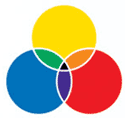Advanced Practice 3: Citizens Reaching For Results
Residents Harnessing Data for Community Change
Residents of four low-income Denver neighborhoods have forged a network based on information and learning that gives residents shared access to data, skill-building opportunities, and a platform to advocate for their community improvement goals. Through the Denver Community Learning Network (CLN), residents have learned to gather, analyze, and disseminate information about their neighborhoods. The resident board of the CLN sets its own priorities and research agenda, manages a $500,000 annual budget, and selects grantees among local organizations, all towards the goal of empowering and connecting their the residents of their neighborhoods through the use of data. Just a few of the CLN’s many efforts have included developing an innovative “story circle” approach to engage neighborhood residents, developing a bilingual website, conducting a comprehensive assessment of their neighborhoods’ access to technology and resources, supporting a resident-conducted survey of neighborhood crime victimization, and creating a tool-kit and technical assistance program to help residents launch their own community organizing initiatives. The CLN is part of the Annie E. Casey Foundation’s Making Connections (MC) initiative, designed to help neighborhoods where poor families are often isolated, in selected cities across the country, build networks of social, organizational, financial, and policy connections to opportunities for improvement. The CLN serves as the Casey-supported “Local Learning Partnership” in Denver. The Piton Foundation, a Denver operating foundation, provides technical support and training to the CLN, and provides a large source of data through its role as a local “data intermediary” partner in the National Neighborhood Indicators Partnership (NNIP), which is coordinated nationally in 22 cities by the Urban Institute.
How the Denver Community Learning Network Helps Citizens Reach for Results
The Denver CLN emphasizes the importance of residents taking ownership of data about their neighborhood to achieve positive community change. While the Piton Foundation could provide a large base of data and analysis to the resident members of the CLN, Piton staff studiously avoided telling residents what information was important, what issues were important to address, or what actions residents should take. Piton provided training and assistance to CLN members in collection, analysis, and use of data, but only after CLN residents determined their own priorities, what CLN members called “taking charge of our own learning agenda.” As CLN residents developed their own capacity to analyze neighborhood issues, they could determine when even the large bank of data Piton has amassed from many sources was not enough, sometimes leading to residents collecting their own data, as in the resident survey of the Cole neighborhood that detected a large amount of unreported crime. To extend how far their data can take them in reaching for results, CLN residents also engage in community organizing and advocacy.
Citizen Roles in Community Improvement
The Denver CLN provides opportunities for resident participation across the full spectrum of citizen engagement roles. Through its story circles, the CLN engaged over 500 residents as stakeholders in the first full year of using that approach. CLN members are issue framers (agenda setters) in setting their own research and learning agenda, deciding what issues to address and what information and skills they need to address them. They are also evaluators of community research proposals and agenda setters again when they decide which proposals to fund. As users of data, citizens define problems and become evaluators of measured conditions. They enhance their evaluator role when they produce their own data. To achieve change, they take on advocacy and collaboration roles. As collaborators, they leverage the assets of community organizations and neighborhood volunteers to help achieve CLN goals. Local service providers, from social service staff to police, have come to see CLN residents as assets in improving their own neighborhoods rather than poor people who need to be taken care of. Overall, CLN members are also collaborators in their own learning. The Annie E. Casey Foundation has used the Denver CLN as an example for Local Learning Partnerships established later in other Making Connections cities.
Additional Community Improvement Themes
Organizations that have achieved Advanced Practice 3 do not have their recommendations systematically enforced by an external, accountable organization. Instead, Denver CLN members have organized their neighborhoods, used citizen advocacy powered by data, and built collaborations with many community organizations to help link desired results to resources and accountability. The network of collaborating community organizations is part of the Casey Foundation Making Connections strategy. By focusing on its strengths, the CLN is succeeding in building a bridge to decision makers. Changes from their efforts include better relations with police, new school programs, and the state’s first community court in one of their neighborhoods.
- See a full List of Examples and Case Studies in Results That Matter
- Go to the Overview of Effective Community Governance or read Chapter 1 of Results That Matter for more on the advanced governance practices of the Effective Community Governance Model and related key community improvement themes.

